- Interviews
- Cesar Bittar (Englisch)
Interviews
Cesar Bittar (Englisch)
Gesprächspartner: Ingmar Böke
Sprache: 
Vom:
12.05.2012
Über
For over 10 years, Cesar Bittar has been responsible for the unofficial King's Quest sequel The Silver Lining. During that time period Cesar started working for Telltale as an Assistant Producer until he started focussing on Phoenix Online. Right now, Cesar and his team are working on their first commercial adventure game Cognition: An Erica Reed Thriller.
Adventure-Treff: Hi Cesar, it’s a pleasure to welcome you back on Adventure-Treff only one year after our last interview. Our readers should know who you are by now so I will get right to your upcoming game: Cognition: An Erica Reed thriller. Please describe the plot of the game with your own words.
Cesar Bittar: In Cognition, you play Erica Reed, a very stubborn, very driven redheaded FBI agent—I like to sometimes say she’s a female version of Jack Bauer. Erica has the ability to touch things and see the past. You find yourself on the trail of several serial killers. The story opens as you are trying to save Erica’s brother from one of them, the “Cain Killer.”
It was the Cognition ability that actually sealed the story of the game. Before then, we were actually working on a story that had to do with Shakespeare style murders. Jane Jensen, Katie Hallahan (my co-designer), and myself worked for a bit on this story until one day I came up with the idea of having Erica have this power. And then we tried to make both things work, but Jane told us they were two very strong themes (Shakespeare and Post-Cognition) and that we should focus solely on one. So we did away with Shakespeare in order to come up with a more interesting character and an ability that could be taken into future games in the series.
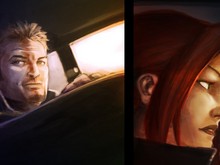
A-T: What kind of gameplay and puzzles can we expect in Cognition?
Cesar: It’s very traditional point-and-click adventure game, but I’ve heard from the press that it feels fresh because of Erica’s ability and how it’s used.
Obviously, the power of Post-Cognition plays a very important role. You actually get to evolve the power and get different other powers such as Regression, which allows you to enter other people’s mind and push some thoughts to help them remember things, or Synergy, in which you combine different objects to make a memory stronger—for example, you are looking at a credit card, but since there are so memories attached to it, you look for a receipt from the time you want to pinpoint in order to make the memories related to that moment clearer.
Puzzles are based largely around the Post-Cognition abilities, but you cannot build a game just based on that. We are, however, always trying to build on the ways the player can use the powers. Overall, though, we definitely have more traditional point-and-click puzzles, where you have to open locked doors, or help someone in order for them to help you.
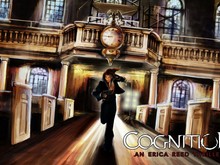
One thing that is very important in this game is the ability to make choices and how those choices divert you into different paths. These vary from different ways to solving puzzles (or sometimes, not solving them!), to not paying attention to Erica’s work and therefore incorrectly answering questions from her boss about her case, to simple choices like deciding to use brute force to get something as opposed to trying a more diplomatic approach. They will affect what happens in the individual episodes to the point of taking you on very different puzzle paths. Some cutscenes will change depending on your choices, you’ll encounter different puzzles, some paths will make it easier to find certain clues, and so on.
We are really excited about all the stuff we are implementing and how the game is shaping up. We had people doing a focus playtest recently, and they were amazed at how the game is coming together. Everyone agrees the opening is very strong and now we are working hard at making the rest of the episode as strong or stronger!

A-T: The artworks of Cogniton are very impressive for sure – which is no surprise as you are collaborating with Romano Molenaar. Please talk about his contribution to the game and how he got on board.
A-T: He works for Khaeon Gamestudio. The artwork was actually crafted by Romano before we attached the story of Erica and her Post-Cognition powers to it. So Romano has been involved with us in the supervising and creation of the cutscene and environmental artwork. He works with our art team and leads them through mimicking his style so that the visuals all mesh well together. And he’s a great guy to work with, very easygoing, very open to ideas and letting others express themselves.
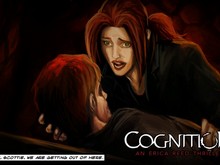
A-T: There is no doubt that Robert Holmes is a legend when it comes to game soundtracks. Keeping in mind how close you and his wife are, it is no surprise that Robert Holmes is involved in Cognition and composing some music for the game. What can you tell us about his contribution to the game and how much it means to you as a huge fan of Robert?
Cesar: Working with Robert has been great. I like to tell a story that when I was a teenager, I actually ripped off the music from all the Gabriel Knight games, and made my own ultimate soundtrack from it. I even asked a friend to compose a theme for me based on something from Gabriel Knight 3 (which I think has the strongest themes of the three GK games).
So, being able to ask Robert for a song, and having him fully compose a song based on the themes of Cognition is an amazing feat. The song is called “The Taking” and it’s sung by his daughter and the mesmerizing voice of Erica Reed, the talented Raleigh Holmes. It’s a beautiful song. I don’t get tired of listening to it!
Our main theme, and the rest of the soundtrack, is being composed by Austin Haynes, who did the music for The Silver Lining. The Cognition main theme is one of his most beautiful compositions yet!

A-T: On Cognition you will work together with Khaeon Gamestudio. Please tell us a little bit about that studio and their job on the game.
Cesar: Khaeon brought Cognition to us. Back then it was called “We Are Darker,” and Erica Reed already existed in sketches, as well as her partner, who we named John McCoy.
They contacted through our Vice President since he’s done work with them in the past, and they wanted us to take the art assets from the previous game and craft a new story for it, as the existing one wasn’t working for them.
But they had done a lot of work for it, especially in concept and art. So we took what they had, and went from there. It was not new for us to have to take a pre-existing world and work around it—it’s very similar to what we did with The Silver Lining.
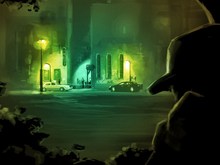
A-T: When do you expect the first episode of Cognition to be released and how long will it probably take until the next episodes will be released?
Cesar: We are finalizing deals with a publisher and we’ll start working on the marketing plan very soon. I cannot say right now when the first episode is going to be released, but I can say expect it to land sometime this summer!
The plan is to have every episode released every month after.
A-T: Do you consider a German version of Cognition?
Cesar: Yes! Not voiced, but definitely subtitled. I don’t know when localization versions will go out, but we are definitely going to be doing English, French, Italian, German, and Spanish, to start with.
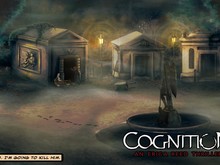
A-T: Phoenix Online describes Cognition as a game in the spirit of Heavy Rain and Dexter.
How exactly can we imagine ourself the influence that Heavy Rain has on Cognition?
Cesar: There’s the darker tone of the game, and there’s the story and how there are certain moments that were very inspired by my experience with Heavy Rain. And there’s what I mentioned before: choices that you can make. Choices you make towards how you treat characters and the consequences of that, etc.
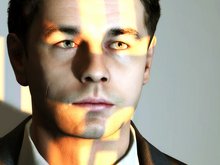
A-T: Aside of Heavy Rain you also refer to the TV show Dexter. I guess that means that I’m not the only Dexter fan around here. What is it that makes this show so special from your point of view and in how far does it have an impact on Cognition?
Cesar: I think Dexter is an amazing show! Incredibly well-written and it keeps you on the edge of your seat. I think shows with this much story throughout a season benefit from short seasons rather than long, drawn out ones, and Dexter’s twelve episodes is just enough to make it shine without ever feeling it isn’t going anywhere.
But man, the writing! Every season has been excellent, and I just can’t get enough of it!
A-T: Some people might think that your move to get Jane Jensen on board as a story consultant was nothing but a PR stunt to get some attention. However, knowing your posts on Facebook, I know that that’s not the case and that Jane’s feedback is extremely important to you. Please talk about Jane’s role in Cognition and how it helps you to imrove as a writer.
Cesar: It definitely hasn’t been a PR stunt. Jane is VERY careful on where she puts her name, and she wouldn’t be putting it on Cognition if she wasn’t looking over it and making sure it’s something that she’s happy to have her name attached to.
Jane has been involved in the story since the very beginning, and so far she has taken a pass at the full scripts for Episode 1 and 2, giving very honest and very strong feedback about things she feels work, and what doesn’t. She had so many notes on mine, and that was awesome, because she saw things I didn’t, and helped me center my focus and my energy on the things that mattered. She also edited a lot of my dialog, so there’s a bunch of lines in the game that are Jane’s, which I think is awesome!
She’s been incredible to work with and we’re definitely look forward to collaborating further in other projects.

A-T: Jane Jensen said that she will do the new Pinkerton Road games together with a studio that she has worked with before which indicates 2 options: Wizarbox or Phoenix Online. Anything you can tell us about that?
Cesar: We’ve been trying to do a project for Jane for a while. We are currently discussing what that’s going to be, and maybe there will be some news about it very soon. In a recent interview with Gamespot, she mentioned us and Signus Labs as studios she’s working on. And we helped her with the concepts of Gray Matter 2 and Moebius. So, yes, I talk to her almost on a daily basis through skype or on the phone, and we are doing whatever we can to support Pinkerton Road and work with Jane and Robert.
I definitely want to produce a full game for Jane. That would be a dream come true!

A-T: In our last interview we spoke about a dream coming true for you: Spending time with Jane Jensen and Robert Holmes on their farm. In the meantime you fulfilled yourself another dream as you met Ken Williams and Al Lowe last year. Please tell us about that meeting and share some anecdotes.
Cesar: What can I say? Meeting Ken Williams, pardon my language, but that was fucking awesome.
I normally meet the goals that I set in my life through perseverance and hard work. If things do not happen today, then I try to be patient and tell myself they will eventually happen. Meeting Ken Williams has always been one of those dreams that was lingering.
I had been talking with him for a while. Since 2003, on and off. I tried doing something with him in 2004, but that went nowhere, and then of course, through the whole C&D of The Silver Lining, etc.
So actually meeting him after almost 10 years of talking to him over msn and email was very inspiring. He doesn’t say much, but what he says is precise and to the point—such a smart guy! And he paid for breakfast!
Al is, what can I say? Al is awesome. I’m so happy he’s making a comeback with Larry, because he eternally deserves it. He’s such a great storyteller and he can keep you fully entertained with his stories and anecdotes. A really great guy to be around!
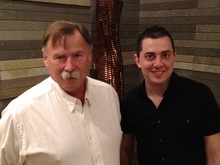
A-T: Let’s move on to The Silver Lining now. Please talk about what we can expect from the finale of the series.
A-T: You can expect a whole new look as the game is being fully revamped using the Unity technologies we are developing for Cognition, and you can expect for it to take a while. We are getting so busy with other projects that it’s becoming more and more difficult to work on the project, but we have a very good and dedicated team working at it slowly.
The last episode will resolve the storylines and will give all the answers people have been wondering about, like who is the mysterious Ranger figure, and what really is going on between Shadrack and Graham. It takes place inside the Dreamworld, which is really exciting because that was a world I came up with on my own as my first task in the project ever, and it’s fitting that we decided it’d be the stage where it all ends.
But yeah, there’s a lot of good stuff going for the episode and we want to finish it with a bang, so that we can finally close that chapter and always be proud of what we accomplished.
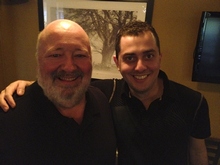
A-T: Is there anything you can tell us about the release date of the fifth episode?
Cesar: Uhh….
(shortest answer in this questionnaire!)
A-T:You’ve been working on The Silver Lining for over 10 years so it is obvious to say how much of an impact this series had on your life. Are you maybe a little worried of a certain kind of emptiness when you close that chapter of your life or are you rather excited about all the new projects that you’ll be working on with Phoenix Online?
Cesar: No, I actually want to close it and move on. I feel bad to have things lingering, they always come back to me and tell me “Hey, work on me!” So I’m the kind of guy who likes to focus on something, get it done, and move along.
But I’m sure there will be a sense of emptiness. Or maybe a sense of shock or deniability when I finally realize there’s no more TSL in my life. But I’m always looking to what’s new and what’s upcoming, and rarely linger in the past. So when it’s done, it’ll be done, and I’ll be happy to be working on an exciting new Phoenix Online project!
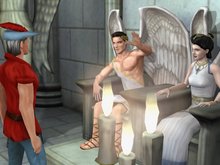
A-T: There was a time when it seemed like the adventure game genre was as good as dead. Now one exciting thing after the other is happening: The Double Fine Kickstarter campaign, Jane Jensen and Pinkerton Road, Chris Jones and Aaron Conners returning with a new Tex Murphy game, Scott Murphy and Mark Crowe joining forces once more, the comeback of Josh Mandel and Lowe, a new game from Revolution etc. What do you think about all these developments and what do you think they will mean for the future of adventure games?
Cesar: It’s super exciting! Oh, man, are you kidding me? All this great stuff happening, and we happen to be happening with it, which is both really exciting and really scary because now we have to compete with the masters! It’s a good thing we started earlier and we have a lead!
Seriously though, I’m stoked. I like to think that what we did with The Silver Lining was the beginning of a lot of great things. We brought King’s Quest back from obscurity and showed people that Sierra is still beloved by so many! And now we have all these people from Sierra and other great adventure franchises coming back after the splash that Tim Schafer did in Kickstarter and it’s just awesome.
I’m glad to be part of the movement somehow, and we are doing our best to help it carry through. I can’t wait to play all of these games!

A-T: Even though you’re now a developer yourself you have always remained a dedicated adventure game fan. Which upcoming adventure games are the ones that you’re personally looking forward to for what reasons?
Cesar: Jane Jensen’s Moebius! I’ve read the heart of the story. It’s so fresh, and so good!
Double Fine’s game of course! I always enjoyed Lucas Art games. The Scott Murphy/Mark Crowe combination just because it’s going to be crazy good. As for something more tangible and in the very near future, I’d say I really want to play The Dark Eye and The Lost Chronicles of Zerzura game. They look beautiful! And I still need to play Yesterday.

A-T: It’s no secret that you are a huge fan of the FMV medium. What are your favorite FMV games for what reasons?
Cesar: My favorite game ever is an FMV game, and that is Gabriel Knight 2: The Beast Within. I also enjoyed Phantasmagoria immensely.
These days I’m a little bit more interested in a game being a game with a great story attached to it, but back then, and especially during the FMV time, I was more driven by the stories alone. That’s not to say GK2 wasn’t a great game, but if I have to pick a single favorite moment from that game, that would have to be the Opera scene. But with that, I understand that we are talking about a 10 minute scene with no interactivity attached to it. But I’ll leave that for the next point.
I think that both GK2 and Phantasmagoria were unique experiences that rarely come along. Phantasmagoria is a great example of a game that allows you to explore, in the vein of Sierra’s great games, and uses the FMV to tell a story it could have not been told back then otherwise. Both games employed the concept extremely well.

A-T: Obviously, there have been some amazing FMV games in the 90s. On the other hand there were TONS of crappy games that ruined the reputation of the medium. How did you experience the fall of FMV and what reasons do you see for the demise of the medium?
Cesar: It was a very short-lived period. I dreaded its fall, especially when we made the switch to the very crappy looking 3D of that time. I found it hard to enjoy games for a while after Phantasmagoria and GK2. Some games like Darkseed 2 or I Have No Mouth and I Must Scream were interesting but greatly lacked the engrossment of the cinematic beasts that were the Sierra jewels. And so, they didn’t excite me as much as they should have (Especially I Have No Mouth, since I was so looking forward to that game). Funny story aside, the next time I felt something like that was when I played Final Fantasy VIII, and that’s when I embraced 3D.
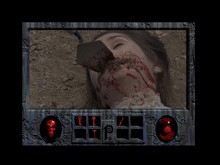
But back to FMV, and especially on the question you asked, I think that part of the reason was because they were trying to make the games too easy while they were implementing this system as well. Looking at Sierra, King’s Quest 7 was the first to have the simplified interface, gone were the narrations, and that was a shock to a lot of people. Next in line was Phantasmagoria, and so in order to become more accessible (and cheaper), Sierra changed the way things worked, and I think that aided the stigma of “FMV took interactivity out of the hands of the players.” I wonder what GK2 would feel like if it had the same icons bar as the original GK did and you could click everywhere and get a response from everything.
Then there’s the whole debate of walking around; people didn’t like that being taken away from them. I personally don’t care, but I’ve experienced some pretty heated arguments that are pro-walking. So I guess I understand some people were very passionate about that and that was taken from them.
But in general, I think that it is something that has more to do with how the industry started to change with FMV rather than the medium per se.
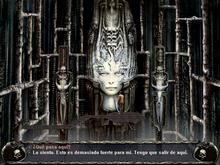
A-T: For many years it seemed like FMV was dead and gone now the table might have turned as Chris Jones and Aaron Conners are about to return with a new Tex Murphy FMV game. Do you think there might come a time when FMV will be the name of the game once again and people will realize how much this medium has to offer when it comes to emotional storytelling? In relation to that: What potential do you see in FMV games that “normal” adventure games might not have?
Cesar: You can’t beat real acting. And no matter how advanced 3D models are, there’s always something much more organic about humans, or at least sometimes. ;)
That said, I also think every medium has the power to be emotional. When I watched “The Grave of the Butterflies” the first time, man, I was a mess. So I don’t think the medium makes story; the story, the writing, and, of course, production values like acting whether it’s FMV or just voice overs, that’s what makes something good, whether you are shooting for emotional or action, or whatever it is you want to do. I recently played Telltale’s Back to the Future, and there were some very damned emotional scenes in that game—to the quality of the stuff found in the movies.
I’m actually more interested in moving forward, personally. I think that the next step of gaming is virtual reality, and I can’t wait until we get there. I think that then, a sort of 3D FMV would be awesome.

A-T: When I met Jane Jensen in London we were talking about the circumstance that in theory there is a HUGE market for adventure games – especially when it comes to people who like good storytelling in other mediums, but who might never have played an adventure game until this day. Jane and I agreed that our task for the future has to be to find a way to to “attack” that new audience. How do you think about this, where could we find that audience, and do you have any ideas of how reach that potential new audience?
Cesar: I think that anybody who likes a story will like an adventure game, or any other game with a good story for that matter. The problem is the mechanics. Obviously, these days it’s easier, because people are more used to their gadgets and computers than, say, 10-15 years ago.
So you have to consider accessibility of course. Heavy Rain is a great example of a game that did it, and there’s something true as to how Sony’s marketing campaign behind the game and the production values of the game that made it more successful than what it would have been on its own, with production values more akin to a regular adventure game, but it still was very successful.
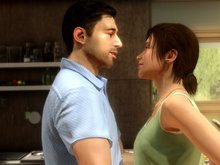
Now, if you ask me, that was a phenomenal story and an incredible way to make me feel like I had a choice and those choices mattered, as well as having me on the edge of my seat for the whole ride. But if you ask someone with puzzles at heart, there was not a lot of meat to bite into.
And I think that’s part of what needs to be done in order to become more accessible. Something where gameplay is more based on exploration and choices rather than the obtuse puzzles that we love so much. Most people, especially in this day and age, do not have the time or the attention spam to solve these puzzles.
Look at Telltale. I haven’t played the recent The Walking Dead game, but from what I hear, it’s a great game that makes you feel the weight of your emotions. I’m also sure it’s not very “puzzly.”
So, there, that’s what I think would make us reach further. And don’t get me wrong, I’m not saying let’s stop making the games we love. Cognition is a very traditional adventure game. I think both types of games can and should co-exist.

A-T: Anything you can tell us about what Phoenix Online will be working on after Cognition?
Cesar: There’s a lot of stuff going on, but nothing I can speak openly of yet. Needless to say, I’m looking forward in the future after Cognition to finally be able to push out Corridor 9, but that depends on how busy we are with other projects, and at the moment, we seem to have a very busy slate. More news as soon as we can reveal it!

A-T: Again, thanks a lot for taking some time for us, Cesar. I really appreciate it. I have a lot of respect for your abilities and therefore it’s a pleasure to give you a platform to talk about your work. Until next time!
Cesar: Thank you Ingmar, it’s always my pleasure—you always ask the better questions! I look forward to the next time!
Aktuelle Artikel
![]()
Unterstützen
![]()
Adventure-Treff-Verein
IBAN: DE38 8306 5408 0004 7212 25
BIC: GENODEF1SLR
Bitte beachtet, dass wir leider keine steuerrechtlich anrechenbare Spendenquittungen ausstellen können.
Mit jedem Einkauf bei unseren Partnern unterstützt ihr die Arbeit des Adventure-Treff e.V.











